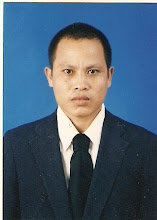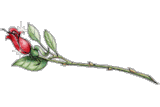CHENGDU, Dec. 29 (Xinhua) -- President Hu Jintao visited quake-hit Sichuan Province over the weekend, showing concern for survivors and inspecting reconstruction work as winter set in.
It was Hu's second visit after the May 12 earthquake. Hu's last visit was on May 16, when quake relief work was in a critical phase.
The 8.0-magnitude quake, centered in Wenchuan County, left more than 69,000 people dead, 374,000 injured, 18,000 missing and millions homeless.
 |
| Chinese President Hu Jintao visits students and teachers at Guixi Middle School in Beichuan Qiang Autonomous County, southwest China's Sichuan Province, Dec. 27, 2008. President Hu Jintao visited quake-hit Sichuan Province on Dec. 27-29, showing concern for survivors and inspecting reconstruction work. (Xinhua/Ju Peng)
|
From Saturday to Monday, Hu visited reconstruction sites, factories, villages, resettlement centers, schools and clinics in battered Mianyang, Deyang, Chengdu and Aba, giving residents and those helping with rebuilding work new year's greetings.
In villages and resettlement centers, Hu went into homes and even the kitchens and bedrooms of local people to see if they were warm enough and well-fed.
"The most important thing is to make sure all people are housed, have clothes and quilts to resist the cold, have enough food for the winter and coming spring, and medical service and epidemic prevention are in place," he said.
At Caijiagang Village, Wenchuan, Hu asked villager Ma Xizhi to be aware of safety problems in using electricity and fire and told local officials to respect farmers' will in building new homes with government subsidies.
At Guixi Middle School in Beichuan County, the president encouraged the students to study hard to repay society's concern.
 |
| Chinese President Hu Jintao (L Front) shakes hands with a woman as he visits residents of the Xingfu Community in Dujiangyan City, southwest China's Sichuan Province, Dec. 28, 2008. President Hu Jintao visited quake-hit Sichuan Province on Dec. 27-29, showing concern for survivors and inspecting reconstruction work. (Xinhua/Ju Peng)
|
He told workers who were rebuilding the school to ensure the quality of the buildings and make them safe and solid.
Hu also inspected the progress of industrial and agricultural reconstruction in the quake areas.
At Dongfang Steam Turbine Works, a large state-owned enterprise, he asked about losses and the recovery of production, urging the employees to speed up the reconstruction and develop the facility into a world-class electric equipment manufacturer.
Many Dongfang employees were killed in the quake. Hu told the officials to pay visits to victims' families during the upcoming festivals and help them solve problems.
The central government has introduced policies to support agricultural recovery, Hu said at a herb production base in Huaxi Village, Dujiangyan. He encouraged growers to make good use of these policies and technology to recover losses from the quake.
The president also expressed respect to workers at reconstruction sites. In Hanwang Township, he praised workers for their hard work and encouraged them to live up to the expectations of the quake region and get their jobs done with high quality and efficiency.
 |
| Chinese President Hu Jintao (R Front) shakes hands with a woman as he visits workers and inspects production at Dongfang Steam Turbine Works in Hanwang Township of Mianzhu City, southwest China's Sichuan Province, Dec. 28, 2008. President Hu Jintao visited quake-hit Sichuan Province on Dec. 27-29, showing concern for survivors and inspecting reconstruction work. (Xinhua/Ju Peng)
|
With the accelerating reconstruction work, demand for construction materials has grown. Hu visited a supply station in Dujiangyan, urging abundant supply and stable prices to serve local needs.
En route to Yingxiu Township, Hu encountered dozens of military vehicles transporting reconstruction material to the quake zone, part of the Chengdu Military District's 1,000-vehicle logistics task force.
Hu praised the soldiers for their contribution to the quake relief and reconstruction, asking them to overcome difficulties and finish the job.
While in Sichuan, Hu also met with provincial officials, encouraging them to fully implement the central government's reconstruction policies.
He told them to put people first, respect nature and seek a balance in speed and quality in rebuilding.
The great quake relief spirits formed in China's fight against the tremendous disaster are very precious, he said, urging the promotion of such spirits among officials at a time of difficulty as an inspiration.




























